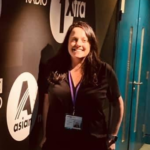My summer placement at BBC News

One thing I love about the Civil Service is the wide variety of professional development opportunities. I’ve enjoyed seeing different perspectives working as an analyst in the public, private and third sector – so I was really pleased to be lucky enough to be accepted on the BBC News Secondment Programme to learn more about the media.
I requested a Summer placement to make it easier to juggle childcare, but it’s turned out to be a real privilege to be part of the BBC at a time when the pandemic has made news critically important. And to join when analytical skills are in such high demand – to help audiences understand statistics on coronavirus and the wider implications. The BBC has been reaching record breaking audience numbers (globally more than 400 million a week!).
I worked closely with Robert Cuffe, the Head of BBC Statistics (worth following @robertcuffe on Twitter). Daily meetings with senior representatives from all news channels (including digital, TV and radio) provided a great platform to identify issues and follow up on opportunities to improve the accuracy of statistical news scripts or online text. Our advice led to factually inaccurate stories being dropped, news lines being changed, and new stories being told.
One thing that attracted me to the secondment was to better understand how sometimes research I’ve led is not reported as I thought it should be. One quick answer to this is that the BBC editorial guidelines advise that survey figures should not be used in headlines (see 10.3.30 editorial guidelines) – so avoid putting them in press release titles. On reflection I can understand this – as surveys always have limitations. This is one example of very many where I saw the BBC working hard to be seen as a trusted and impartial news source.
Another explanation is the pace of the media. I thought ministers often made me work quickly, but the speed in which Robert and journalists work is phenomenal. Together on Zoom we would look at statistical publications on their release (as early as 7am), and draft lines within around 10 minutes (sometimes to be heard on Radio 4 immediately after we pressed send).
We would take the remainder of the hour to consider the release in more detail and draft lines for BBC channels more widely. The Government Statistical Service (GSS) often makes this an easier task by clearly setting out all the main points, but management information can be less easy to navigate. As a Civil Servant I now really appreciate the value of pre-release access which gives me more time to ensure I fully understand GSS findings in my area of work.
The pressure on BBC staff to report statistics in the ‘right’ way is immense. It is easy to see on social media, or on Parliament TV, how often the BBC is challenged. During my time on secondment a number of complaints landed in my inbox. Sometimes I felt these were fair, and really helpful. And we changed reporting of statistics accordingly. But sometimes they felt vexatious.
This experience has some similarities to the pressure we as GSS staff are sometimes under. BBC teams I worked with did seem to do more regular quick (less than 10 mins) verbal team catch ups (and far less emails) than I’m used to. I will try to do short debriefs more frequently as I always find solace sharing my thoughts with analytical colleagues.
Restrictions associated with the pandemic do mean I’ve missed out on the excitement of regularly being in the newsroom (and the BBC bar after work!). But working remotely has given me opportunities to engage more widely with teams across the UK, as more discussions now take place online and virtually. And I’ve been able to spend more time with my family – and importantly, my Labrador Spot.
The opportunity has exceeded my expectations and I would recommend it to any analyst.
You can now apply to work at the BBC for a three-month placement between April and June 2021. The deadline for applications in 19 January 2021.
